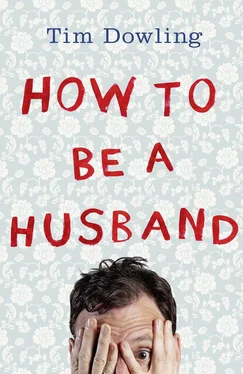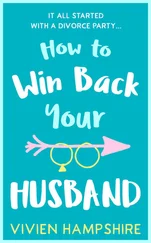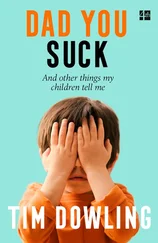It is, of course, a delicate balancing act, requiring tact, sound judgement and a good deal of empathy, which is why I have on several occasions got it badly wrong.
‘I don’t like when it says, “My wife” in the headline,’ said my wife one Saturday in early 2008. She had never before objected to me referring to her only as ‘my wife’ – appreciating, I think, the half-hearted stab at preserving her anonymity – but spelled out in big letters the term suddenly looked dismissive and belittling, especially in a headline like the one she was reading: ‘I don’t like it when my wife hires people and then leaves their stewardship to me.’ It was an understandable objection, one that required a tactful, carefully worded response.
‘I don’t do the headline,’ I said. ‘They do the headline.’
Some months later she told me I couldn’t write about our eldest son referring to her as a ‘self-esteem roller’, but it didn’t feel like a gem I could relinquish easily. I wrote about it anyway, including her objection in the piece, and decided to treat her stony silence as tacit approval.
Six months after that my wife exclaimed, apropos of nothing, that she would divorce me if I ever wrote that I found her watching Dog Borstal . It seemed like a bluff worth calling.
One rainy day during our summer holiday in Cornwall, she looked up from the newspaper at me with very angry eyes.
‘You’ve gone too far,’ she said. I looked back blankly – by the time the paper comes out, I don’t always remember what I’ve written.
‘What are you talking about?’ I said.
‘You compared me to the Canoe Wife!’ she shouted. Then I remembered: we’d been bickering while watching something on the news about the Canoe Man – who had disappeared after rowing off in what was, I believe, technically a kayak – and his wife, who conspired with him to fake his death so they could start a new life in Panama.
‘I think you’re misreading it,’ I said. When I looked at it again later I could see where I might have inadvertently drawn some parallels between my wife and the Canoe Wife, but I still thought her interpretation required a pretty ungenerous assessment of my intent.
She spent the rest of the afternoon ringing people who she knew would agree that I had gone too far. Under the circumstances I did the only thing I could think of: I wrote about that, too.
More than a year went by before it happened again: this time my wife was furious – properly furious – because I had written something she didn’t like, in a column in which she barely appeared. Her explanation didn’t make much sense to me (I won’t risk attempting to reiterate it), but there was no mistaking her anger.
I realized that it didn’t matter that I didn’t get it; that her reaction was reason enough to stop doing the column if she wanted me too – she didn’t even have to give me a week’s notice. I briefly thought about offering to quit, until I weighed up the chances that she might, in her current mood, take me up on it.
There were a couple of obvious solutions to the problem. I could have steered clear of writing about my marriage, although my wife insisted she was not uncomfortable with the column itself – she just got occasionally pissed off with an infelicitous phrase she thought might get her into trouble at work, although this only happened once, and neither of us saw it coming that time.
I could, I suppose, show her the column beforehand to give her a chance to voice specific objections, but I don’t like her seeing it ahead of time, because then she might not laugh the next Saturday. It’s meant to be a surprise.
To be honest, I wish I’d upset my wife with a callously worded phrase as few times in real life as I have done in my column. I do lots of stupid and unkind things in the course of my marriage, but with the column I get a whole week to figure out where I went wrong and, in effect, apologize.
An obligation to write about one’s marriage carries the risk that one might be reduced to creating conflict simply in order to fulfil a weekly word count. The truth is, I’ve never had to. People may find this hard to believe, just as I find it difficult to imagine a marriage so well conducted that it lacks the disquiet required to sustain a weekly column. To be honest, I’m not sure I’d want to be part of a marriage like that, anyway. Chances are the couple in question wouldn’t be that into it either.
Twenty years ago my wife and I embarked on a project so foolhardy, the prospect of which seemed to us both so weary, stale and flat that even thinking about it made us shudder. Neither of us actually proposed to the other, because neither of us could possibly make a case for the idea. We simply agreed – we’ll get married – with the resigned determination of two people plotting to bury a body in the woods. Except that if you did agree to bury a body in the woods, you probably wouldn’t ring your parents straight away to tell them the news.
Two decades on we are still together, still married and still, well, if I hesitate to say ‘happy’, it’s only because it’s one of those absolute terms, like ‘nit-free’, that life has taught me to deploy with caution. It feels inherently risky to express contentment: I know that twenty years of marriage doesn’t necessarily guarantee you ten more.
I can only really speak for myself, and while I would concede that I am, on balance, content, there also isn’t a day that goes by without me stopping to think: what the hell happened to you? Not, you know, in a bad way. But I’m still surprised, every day.
This is not really a self-help manual. If you come across anything that resembles advice in it, I would caution against following it too strictly, although I’m aware that is, in itself, advice. The kind of people who read self-help books are not, I’m guessing, looking to be more like me.
This is simply the story of how I ended up here, and along with it an examination of what it means to be a husband in the twenty-first century, and what is and isn’t required to hold that office these days. I can’t pretend to offer much in the way of solid advice on how to be a man. Just as my sons think admonitions such as ‘Don’t panic!’ sound a bit rich coming from me, so would any tips I could possibly give them about attaining manhood. I tried to become a man, but in the end I just got older.
But ‘Husband’ – it’s one of the main things on my CV, right below ‘BA, English’ and just above ‘Once got into a shark cage for money’. ‘Husband’ is the thing I do that makes everything else I do seem like a hobby.
Although I wear the distinction with pride, I’m aware that the title ‘husband’ is not one that affords much respect these days. It was always a bit of an odd word. Of Old Norse derivation, ‘husband’ basically means ‘master of a household’, a sense that still lingers in the word husbandry, referring to the stewardship of land and/or animals, and doesn’t apply to me at all.
No other European language uses a word like ‘husband’ to mean ‘husband’. In Sweden they say ‘man’; in Denmark, ‘mand’. The French use the much more egalitarian ‘mari’, which just means ‘married male’, although it’s easy to confuse with the girl’s name Marie, and also the French word for mayor’s office. As a consequence I often mistake the most basic French pleasantries for admissions of intrigue.
‘Husband’, on the other hand, sounds like an arcane office long shorn of its trappings, and is therefore faintly comical. It’s like calling someone for whom you have no respect ‘chief’. So while I feel able to use the word ‘wife’ with a mixture of pride and delight (‘Hey look! Here comes my wife!’), my wife only ever uses the phrase ‘Have you met my husband?’ as a punch line, generally when she overhears people discussing the perils of self-googling.
Читать дальше












